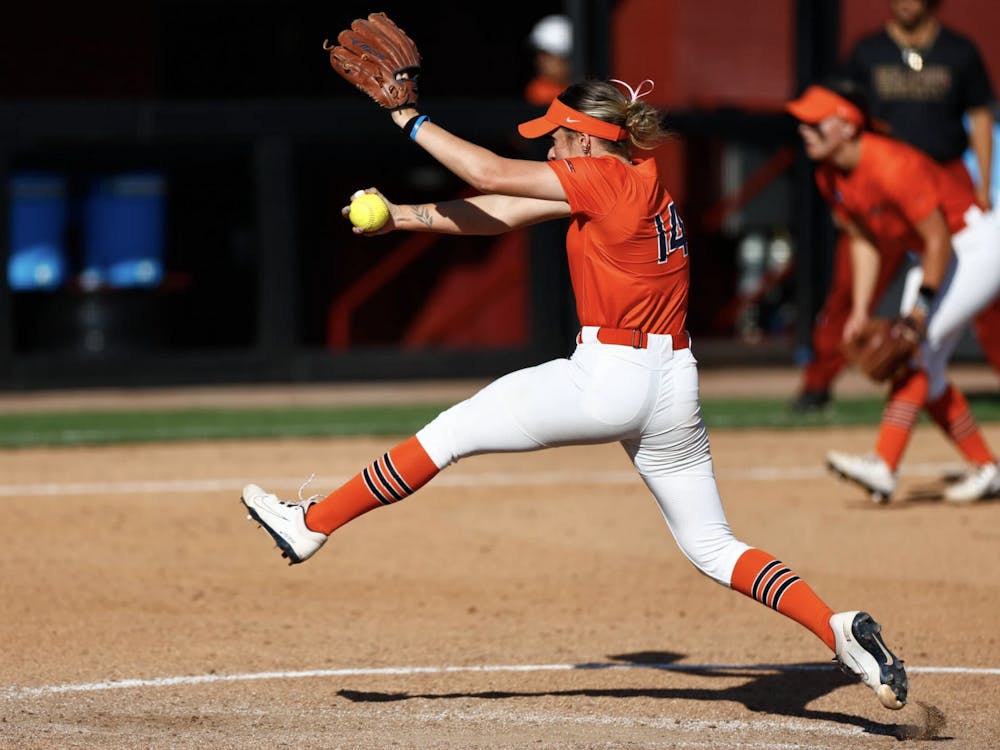Sophomore wide receiver Kevin Ogletree stated the obvious during the post-game interviews following Virginia's 24-7 loss at Georgia Tech Thursday evening.
"There are a lot of things that we've got to fix," Ogletree said. "We're ready to get back and work on those things that we need to get better at."
Having lost three of its first four games, Virginia's list of areas that need improvement is about as long as the Empire State building is high. But the No. 1 priority on the list has to be the offensive line.
Because of the line's inability to pass protect or run block, redshirt freshman quarterback Jameel Sewell was frequently hurried or hit while Virginia's running backs averaged a mere 2.2 yards per rushing attempt.
To add to the offensive line's woes, three different linemen were called for false start penalties.
"It was pretty hostile and loud at times," junior center Jordy Lipsey said. "That might have had something to do with it."
That explanation, however, fails to explain the five false start penalties committed by Virginia's offense at home during the 17-10 loss to Western Michigan.
"We have who we have," Virginia coach Al Groh said of his offensive line. "It's going to be up to some of them to step up. We can only use the 'I'm inexperienced' tag for so long."
In an effort to shake things up a bit, sophomore Zak Stair started at left tackle against Georgia Tech in place of a struggling Eugene Monroe.
Virginia's running game has struggled immensely thus far. While senior Jason Snelling has posted utilitarian numbers (42.7 yards per game, 3.7 yards per carry), sophomore Cedric Peerman (14.2 ypg, 1.9 ypc, zero TDs) has so far failed to live up to the promise he showed during his freshman campaign.
"We're certainly not getting the kind of push on the run that would enable us to take some of the burden off the quarterback," Groh said.
All of this has left Virginia's quarterbacks in a tight spot. Overall, Sewell, Olsen and McCabe have posted mediocre numbers, completing 78 of 135 pass attempts with two TDs and seven interceptions.
Despite Thursday's loss, Groh was impressed with Sewell's poise during his first career start.
"Quarterbacks have to have a short memory," Groh said. Sewell "came back and played his best as the game evolved. There are quite a few things for him to learn, but he is not going to learn those lurking over there on the bench."
Sewell's performance was marked by an inconsistent passing game. Several times, he badly missed wide-open receivers.
"Just from the consistency factor, sometimes he's low, sometimes he's high, sometimes he's right on the mark," Groh said. "Like some of those guys they bring up in the Major Leagues, they've got a good fastball, but, until they mature a little bit, they're not all strikes."
Groh added that the lack of consistency didn't convince the coaching staff to pull Sewell, as they "were just determined we were going to give him a chance to play through it and he did a nice job."
Groh also recognizes that, because of the state of the offensive line, anyone who lines up under center for the Cavaliers will be forced to use his feet.
Sewell "showed a little bit of elusiveness in the pocket, which certainly a quarterback on this team right now needs to have," he said.
Not all of Virginia's problems are on the offensive side of the ball, though. The defensive secondary gave up two long touchdown passes to Georgia Tech wide receiver Calvin Johnson. In total, the Cavaliers have surrendered four touchdown passes of 58 yards or more this season. Virginia ranks seventh in the ACC in the total defense statistical category.
"We still see some of the same things reoccurring," Groh said. "That is, we give up deep balls in the secondary that dramatically change the game, unnecessary before-the-snap penalties and the failure to step up and make some plays. The script continues to remain the same. There's got to be some guys that make the change. We can't go on the waver wire."






